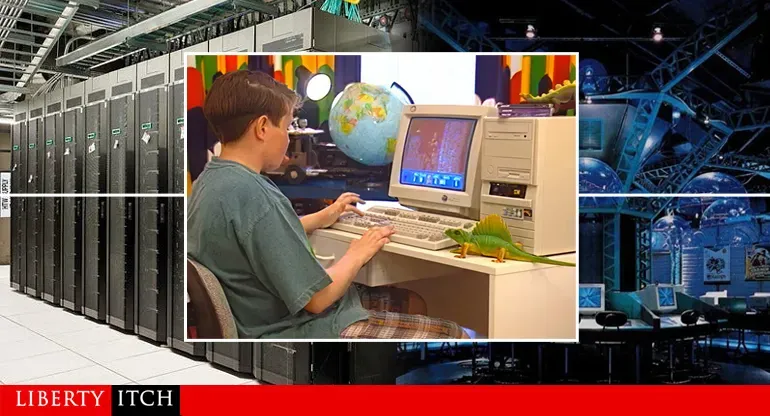Table of Contents
When I was younger gaming was just beginning to emerge from the underground into the mainstream. Gamers were starting to be treated as serious athletes and celebrities and gaming tournaments began to gain the same coverage and attention as any other sports competition.
What began as a subculture for people entertained by the virtual world has now become an estimated $5.9 billion industry being taken seriously as a sport with the possibility of inclusion in the Commonwealth games and the Olympics.
Being an entertainment and cultural institution, it was inevitable that politics would enter the gaming world. As I wrote in a previous article about comic books, the video game industry was at risk of becoming infected with the woke mind virus that had already spread throughout other facets of pop culture and would turn into another propaganda machine preaching the values of ‘tolerance’ and ‘diversity’, in turn brainwashing the gamers into becoming useful idiots for the cultural Marxists.
However, imagine my surprise when there was a backlash. The most prominent example was ‘Gamergate’, a controversy over a female game developer who was accused of having an affair with a gaming journalist to obtain favourable reviews for her game. This led to a revolt against corruption in the gaming industry.
Another incident that further surprised me was in relation to the Marvel’s Spiderman: Miles Morales, in which Insomniac Entertainment developed a modification that changed all the flags flown in the landscape to Pride flags. This modification was not as popular as another modification that changed all the flags to American flags. Another sign of this was the rejection of the sequel to Naughty Dogs’ The Last of Us, with sales plummeting due to explicit LGBT themes.
So why do gamers appear to reject the woke virus out of all of pop culture? I believe it is due to the nature of how this entertainment is consumed and also because of the virtual world that gamers can enter into.
First is due to the nature of how it is consumed. What differentiates gaming from movies or TV shows is that gaming requires active participation as part of consumption. Movies or TV shows can be consumed passively with no effect or consequence to the viewer. What happens in the world of the film/TV stays in that world. This includes the rules and values that the film/TV show is trying to communicate. The screen separates the audience from the world of the film/TV show, thus separating them from the rules, norms and values of that world. They merely observe while not interacting in this world. And it is this passive participation that allows them to leave afterward with no obligation to adopt those values.
By contrast, gaming requires active participation: to consume a video game is to enter the world of the game and to interact with its civilisation. This forces the gamer to follow the rules and the norms of the game. This makes it personal, as they are forced to change in order to conform to the world of the game and the story. Therefore due to the nature of the consumption, and unlike movies/TV shows, the business of gaming developers is to try to convince gamers to enter the world they have created and to participate in the stories they have written.
So what kind of stories are people interested in participating in? What world would they be willing to enter? In general, it seems to be stories about the battle between good and evil, about strong characters defending the vulnerable against predators and a reflection of the mythologisation of man’s struggle against evil, something we see in the epics of Beowulf and St George and the Dragon. Specifically, it seems gamers are interested in partaking in the ancient mythology of the hero’s journey, a theme which we see time and time again in the most popular video games. People want to play the hero, to fight dragons and monsters and rescue the princess. They want to experience adventure and be able to show courage and strength. This is what we see in the most popular games such as Mario, Zelda, Call of Duty, Halo…games where people can face their fears in a simulated environment, while also reacting to situations and developing skills in problem solving and hand-eye coordination.
There is also a running theme of patriotism and nationalism in the most popular titles, with the motives of the protagonist related to faith, family and tradition. I believe this is due to game developers realising the importance of natural law and order in the game production process. In their journey of creating a whole world and society, they have learnt what it means to be a creator, in a sense: the game production process has allowed them to play God and what it means to control a world. And this has revealed to them the importance of natural laws. There have to be laws and rules in order for their worlds to run efficiently, otherwise there is complete chaos and no purpose to their games. I believe this realisation has pointed them to the possibility of God and the objective moral standard that he has created. They have realised that, just like their worlds, the world we live in must have rules in order for us to flourish and function. Perhaps that explains the religious themes and symbolism in titles like Assassin’s Creed, as game developers have gained a significant amount of respect for religion and order. This has led to them understanding of a good and evil in the world.
This is another example of what is known as subcreation or fantasy in which created beings use the objects of the created world to create something. This is another way for us mere humans to learn more about our creator, to discover His perspective and a hint of why He does what He does. Through this, people learn that revolutionary change brought by wokeness is not possible, that the only way for our civilisation to flourish is by preserving tradition and natural law and that these laws must be defended. They also understand that the stability of the nuclear family as part of this civilisation is due to the perfect balance between the masculine and the feminine. As noted by Jordan Peterson, too much of one or the other would lead to chaos and so it is only through a perfect balance of both forces that leads to perfect order and stability. This is perhaps why many of the most popular male characters are husbands and fathers.
It is through this experience that gaming builds character: developing a healthy masculinity that desires to defend the good, true and beautiful against evil and protect the vulnerable due to the positive masculine role models in the games who take part in these epic myths against monsters. These masculine characteristics lead to expressions of nationalism and patriotism. Perhaps it is for these reasons that the military is now using games as a recruiting tool.
It seems that gaming may be part of the push back in the culture war and the fight to save our civilisation.









